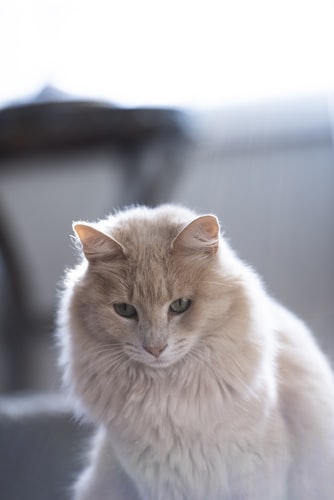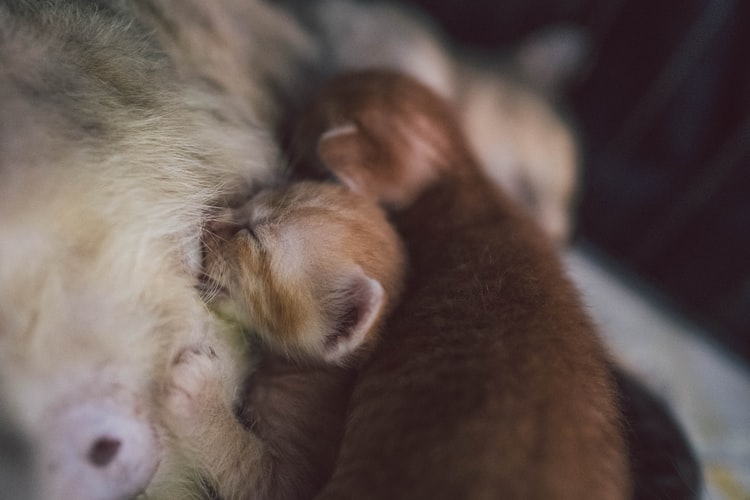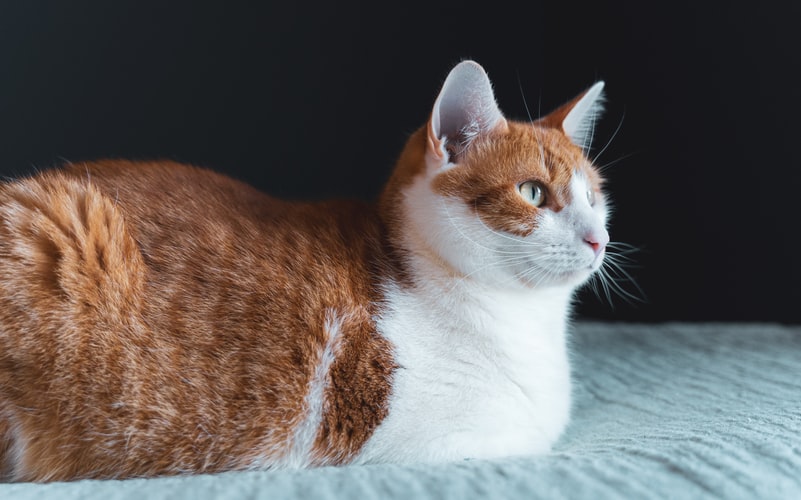Fleas are extremely annoying to pets and can even be dangerous for kittens. Although you can apply flea treatment for nursing cats removing fleas manually is usually needed for newborns. Older kittens may be able to withstand medications or a flea brush. However, make sure to ask your vet first what is the best and intervention for your feline pets.
Methods of flea treatment for nursing cats and their kittens

Step one
Apply a flea treatment for nursing cats on the mother only. The medications applied topically can be poisonous and kill fleas when absorbed on your feline pet’s skin. Typically, you would apply these medications between a cat shoulder blades or on the back of the neck. After some time, the medication would begin to kill off the fleas. It is usually safe to use these medications as a flea treatment for nursing cats, and it should not affect their kittens. But they can be extremely dangerous to younger cats. Only apply topical medication to treat fleas on the mother.
Make sure to consult your vet about the safety of flea treatment for nursing cats. Although there are tons of medications on the market that are safe to use on nursing mothers, other brands may carry risks.
In some cases, it is crucial to separate the mother and kittens after applying the medication. Consult with your vet prior to this.
Step two
Bathe your kitten to get rid of the fleas. Applying harsh chemicals is not safe to use on young kittens, especially newborn ones. Instead, gently bathe newborns using dish soap. Apply a mild dish soap that does not have antibacterial components.
To start, fill a good-sized tub with warm water and soap. But your kitten in it and immerse them up to their neck in the water. Apply the cloth to gently moisten the kitten’s face but make sure to steer clear from the eyes.
Get them out of the water and massage the soap into its skin. Once again submerge the kitten up to their neck and rinse them. Make sure that you fully dry the kitten with a warm towel when you are finished. Remember to keep your kitten in a warm environment until it is completely dried in warm.
Step three
Manually remove the fleas. After bathing, you should remove the fleas when you see them crawling. Fleas may be running around on the kitten’s head, or neck during the bathing process so get rid of these fleas using tweezers or your fingers as you dry your kitten. Put the fleas into a cup of hot water to kill them after removing them from your kitten’s body.
Step four
Consult your vet about the safety of products for older kittens. Kittens that are beyond four weeks may be able to handle oral medication to get rid of fleas. This is helpful since such medication can get rid of fleas in several stages of their life cycle. But you should never apply medication to your kitten without asking your vet first. Kittens are more sensitive than older cats, and even older kittens may have a poor reaction to a medication.
Oral medication is typically given once a day to get rid of the fleas for them to start working quickly.
Some kittens that are older than six weeks may be able to withstand topical medications once a month. But these medications can be extremely dangerous if your kitten is not in good health to tolerate them. Consult with your vet before applying such medications on your pet.
Step five
Comb your kittens for regularly with a flea comb. Utilizing a flea comb is an effective tool to treat fleas in young kittens, especially if your kitten is still too young and fragile for any medication. Comb the kittens every day with a flea comb. Get rid of the fleas that you see with either your fingers or tweezers. Put these fleas in a bowl of hot water to kill them. Consult with your vet first to make sure that you are choosing a healthy and safe flea comb for your kittens.
Treating the Environment– flea treatment for nursing cats

Step one
Wash all cat beddings in hot water. Fleas do not exist on your cats and kittens alone. They can live in the surrounding environment for long periods. Aside from treating your kitten with flea combs, medications, and baths, you should also use warm water in washing all their beddings and toys. Wash their items regularly to stop the infestation. You may also consider washing every item they have come in contact with warm and soapy water
Step two
Vacuum regularly. Fleas can exist in your furniture and carpet. While there is an infestation, vacuum regularly to get rid of the flea, eggs, and larvae from your household. Vacuum the carpet as well as any upholstered furniture.
Step three
If you think infestation is serious, hire professional exterminators. If you are still seeing fleas running around, take the proper precautions and SOS professionals. Fleas are an extreme nuisance. They bring with them diseases such as worms that can be harmful to young kittens.
Make sure that you know what intervention to do with your pet during the extermination process. You may have to put your pets outside of your home before and after your home is getting treated for pests.
Step four
Put all the debris outside of your home. Do this to minimize the risk of allowing fleas back in after an infestation has passed. Fleas might get in from outdoors if you keep organic material such as leaves and dirt inside. Make sure none of these materials are inside your home so you can minimize the chances of flea re-infestation.
Avoiding Common Mistakes– flea treatment for nursing cats and their kittens
Step one
consult with your vet whenever possible. Younger kittens and nursing mothers cannot withstand medication as well as other cats. It is always a good move to talk with your vet about treatment options beforehand, especially if you are thinking of using chemical interventions. The first step you should do when you find out that there is a flea infestation is to bring your cat and kittens to the vet for an examination.
Step two
Minimize using topical medications on kittens. Overall topical medications are not a safe treatment for kittens, especially those that are under six weeks of age. Kittens have a better response to treatments like bathing, combing, and removing fleas manually.
Only apply topical medication on your kittens if your vet recommends it. Make sure that you are following your vet’s instructions carefully when applying such medications.
Step three
Never use products intended for dogs on your cats. If you are applying a topical medication, make sure it is targeted for cats. Although there are similar products aimed at dogs, they do not have the same chemicals. The treatments can be extremely dangerous when applied to cats.
Frequently asked questions about flea treatment for nursing cats

Can nursing mothers wear flea collars?
It is never safe to use a flea collar as a flea treatment for nursing cats. Always remember that a flea collar contains poisons, and the kittens of the mother might bite or chew these ingredients.
Can you use Dawn dishwashing detergent on cats?
Dawn dishwashing detergent is completely safe for kittens. It is highly effective in getting rid of fleas. You might consider using a flea comb to eliminate the fleas completely.
Can you use herbal treatment on your kittens to treat the fleas?
Herbal remedies are recommended for cats, but you should consult a vet before applying these kinds of treatments to your kitten since kittens are extra sensitive compared to older cats.
Can dawn dish soap be used on the nursing mother cats as a flea treatment for nursing cats?
Dawn dish soap can get rid of fleas extremely fast. The reason is the pH of dawn dish soap is neutral, which makes it safe to use on cats, kittens, as well as dogs and puppies. Try this product to keep your home and pets free from fleas.
Can I apply a flea treatment for nursing cats?
As much as you can, avoid flea medications on a nursing mother since it is not safe for their kittens. The best option is for you to use a flea comb and remove any fleas manually. You might also consider bathing the mother cat with dawn dish soap to exterminate existing fleas. Try not to medicate the mother nor apply a flea treatment for nursing cats until the kittens are older. Make sure to examine the kittens daily for any fleas.
Methods of flea treatment for nursing cats and their kittens
Flea parasites can infest a mother cat as well as their newborn litter especially if you have recently rescued them from outdoors. These pets may be suffering from anemia and other diseases. Unfortunately, you cannot give them flea remedies since the younger kittens are attached to the mother so you will have to get rid of the fleas manually.
Flea Medications
Although there are plenty of topical and oral flea medications on the market which can get rid of fleas in kittens, these are targeted for those that are 4 to 8 weeks. These medications cannot be used on kittens that are only a week old. Another crucial concern is the mother since many flea treatment for nursing cats are not safe. There are certain insecticidal medications which can adversely affect a mother cat’s kittens since it can be passed on from their milk.
Although some medications can be administered orally such as chewable tablets these contain ingredients nitenpyram which is only safe for the mother and will eliminate the fleas on her alone. Other topical flea treatments will contain ingredients such as selamectin which are also considered safe flea treatment for nursing cats. Before applying any kind of medication with the mother, ask your vet first to ensure that it is a safe flea treatment for nursing cats.
Bathing time
Although the mother can be treated with a topical or oral flea preventative, it may not be compatible with her kittens. To get rid of these bloodthirsty bugs, you need to give them a good bath using a simple dish soap which has zero harmful insecticides.
It can rid them of the fleas and wash it away. Experts recommend this kind of treatment. Simply apply a bit of soap on the kittens on a good-sized tub or in your kitchen sink with some lukewarm water. After a couple of minutes, rinse off the warm water gently. Avoid getting soap near their little faces, especially the eyes, and use a damp washcloth to wipe their faces clean. After bathing time gently dry them with a towel. Put them on a towel over a heating pad to reduce chills as they dry. Clean every kitten one after the other so that any unbathed one will not reinfect and pass on fleas to the others.
Combing Away Pests
Apply a flea comb to get rid of the fleas from both mother and kittens before or after a bath. These combs will have very closely spaced teeth that help grab the little fleas and their eggs away from your kitten’s fur. This may be a time-consuming process, but if you carefully comb through the mommy kitty as well as her kitten’s fur, you can get rid of all the fleas wedged in their coats.
Since these are extremely small, you may also have to use a pair of tweezers to pluck them out from sensitive areas such as faces and backsides. Put any fleas you find in a glass of rubbing alcohol or soapy water to kill them off.
Considerations
Fleas are a serious problem, especially for you kittens because of their tiny size. Little kittens can suffer anemia if their fleas are not mitigated. Bring both the mother and her kittens to the vet for a health checkup as well to determine if any additional medical care is needed. A vet might also give you some recommendations on safe methods to remove the fleas from both the mother cat and her kittens.
Final thoughts
A nursing cat should be healthy inside out. But, parasites such as fleas are very persistent pests which can harm a nursing cat and her kittens. You might consider applying flea treatment for nursing cats to weed out these pets to clean and maintain the health of your cat. Make sure that any flea treatment you apply to the mother is safe for the nursing kittens as well.
